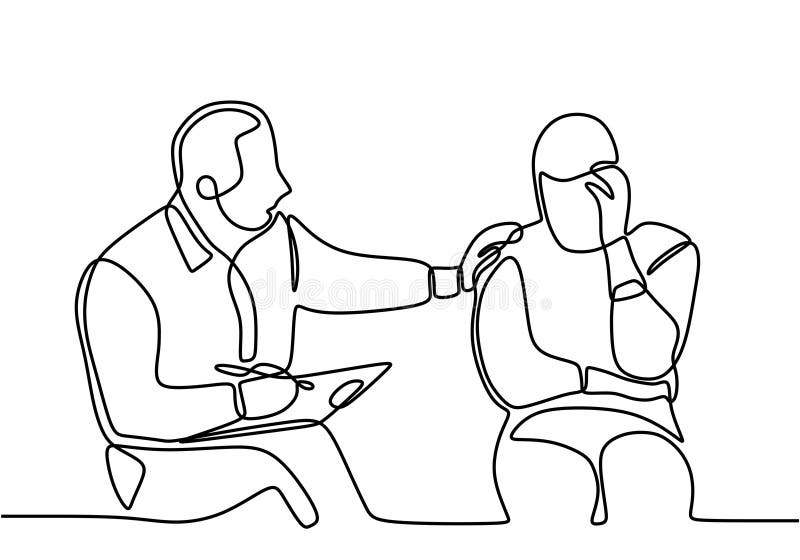Psych Treatment: A Comprehensive Guide to End Results and techniques

Cognitive-Behavioral Treatment
Cognitive-Behavioral Treatment (CBT) is a commonly utilized psychotherapeutic strategy that focuses on identifying and changing inefficient thinking and habits patterns. Developed in the 1960s by Aaron T. Beck, CBT incorporates behavioral and cognitive concepts to address numerous mental health and wellness issues, consisting of anxiety, anxiety, and stress-related problems. The facility of CBT is that maladaptive ideas add to psychological distress and maladaptive behaviors. By reorganizing these ideas, individuals can attain significant renovations in their emotional well-being and daily functioning.
Methods such as cognitive restructuring, exposure therapy, and skill-building workouts are generally used. Cognitive restructuring includes challenging and altering adverse thought patterns, while exposure treatment intends to decrease anxiety and anxiousness via progressive exposure to been afraid circumstances or objects.
Evidence-based research sustains the efficacy of CBT for a vast array of mental problems - Best Psychologist in Delhi. Its emphasis on ability purchase and self-help techniques equips clients to proceed progress individually after therapy concludes. The adaptability and efficiency of CBT have actually made it a cornerstone in modern psychotherapeutic method
Psychodynamic Techniques
Rooted in the very early theories of Sigmund Freud, psychodynamic techniques focus on checking out the subconscious mind and its influence on actions and emotions. These techniques intend to discover covert ideas and feelings that may be driving maladaptive actions and psychological distress. Central to this technique is the concept of inner problem, commonly stemming from unsettled previous experiences, particularly those from youth.
Therapists making use of psychodynamic techniques utilize numerous essential approaches, consisting of totally free organization, where people are encouraged to speak easily to disclose subconscious material, and dream analysis, which analyzes the latent material of desires. Furthermore, the expedition of transfer and countertransference dynamics within the therapeutic relationship is vital. These communications can provide insights into the individual's inner globe and relational patterns.
Psychodynamic treatment is generally longer-term contrasted to other techniques, using a comprehensive and deep understanding of the individual's subconscious. Study shows that it can be specifically effective for complicated mental health issues, such as personality disorders and chronic anxiety. By cultivating self-awareness and psychological understanding, psychodynamic therapy seeks to bring unconscious material to consciousness, enabling people to attain purposeful and long-term change in their lives.
Humanistic Strategies
Structure on the structures laid by psychodynamic methods, humanistic methods provide an unique perspective concentrated on specific possible and self-actualization. Coming from in the mid-20th century, these techniques prioritize the integral benefits and growth potential of people, highlighting an alternative view of human experience. Trick numbers such as Carl Rogers and Abraham Maslow have considerably influenced this healing technique, which includes methods like client-centered treatment and Gestalt therapy.
Client-centered treatment, established by Rogers, plays a pivotal function in humanistic techniques. The specialist's duty is more of a facilitator than an authority, urging clients to harness their internal sources for healing.
Gestalt treatment, another important humanistic strategy, highlights existing minute understanding and the assimilation of mind and body. By concentrating on the "present moment," clients get greater insight right into their current feelings and actions. Techniques such as role-playing and led visualization are typically used to help clients get a much deeper understanding of themselves, ultimately causing boosted self-awareness and fulfillment.
Integrative Therapies
Integrative treatments stand for a synthesis of different healing techniques tailored to satisfy the one-of-a-kind needs of each client. This method recognizes the intricacy of human psychology and the complex nature of mental health problems. Related Site By integrating components from various colleges of psychiatric therapy-- such as cognitive-behavioral therapy (CBT), psychodynamic therapy, and humanistic methods-- integrative therapies provide an even more versatile and all natural therapy standard.
Practitioners of integrative therapy evaluate each client's particular requirements, signs, and personal history to devise a customized therapy strategy. This customized technique improves the potential for therapeutic success by addressing the source of emotional distress and advertising general well-being. Techniques might consist of mindfulness workouts, cognitive restructuring, and emotional processing, each picked to target various elements of the client's issues.
Moreover, integrative therapies stress the healing connection, watching the client-therapist bond as a vital component of reliable therapy. This relationship cultivates an encouraging atmosphere where customers feel safe to check out and address their problems. The versatility of integrative therapies makes them ideal for a broad series of conditions, consisting of stress and anxiety, depression, trauma, and social problems, thereby boosting their applicability and effectiveness in varied clinical setups.

Gauging Therapy End Results
Examining the effectiveness of psychiatric therapy is important for both clinicians and customers to ensure that the therapy is yielding the preferred outcomes. To accomplish this, various techniques and devices are utilized to gauge therapy results methodically. Standardized analysis instruments, such as the Beck Clinical Depression Inventory (BDI) and the Generalized Stress And Anxiety Problem 7 (GAD-7), offer measurable data on symptom why not check here extent and modifications with time.
In addition to standardized devices, qualitative methods like client self-reports and medical interviews provide valuable insights into the individual experiences and viewed progression of clients. Routinely arranged evaluations, usually at the start, omphalos, and end of treatment, aid in tracking the trajectory of improvement or identifying areas needing modification.
Result dimension is not restricted to signs and symptom decrease; it additionally encompasses functional improvements in every day life, such as much better interpersonal connections, boosted job efficiency, and improved general wellness. Modern improvements in electronic health and wellness have actually site introduced mobile apps and on the internet platforms that facilitate real-time monitoring and feedback, further refining the analysis procedure.
Inevitably, a detailed strategy to gauging treatment results guarantees that healing treatments work, efficient, and customized to fulfill the private demands of customers, consequently enhancing the general therapeutic experience.
Conclusion
Psychiatric therapy uses a diverse range of techniques intended at resolving certain mental health concerns and improving overall health. Cognitive-Behavioral Therapy and psychodynamic approaches target dysfunctional ideas and unconscious impacts, specifically. Humanistic techniques concentrate on personal development and self-actualization, while integrative therapies incorporate several methods for customized treatment strategies. Assessing treatment outcomes via standard assessments and qualitative techniques makes sure an extensive understanding of performance, ultimately leading clients towards sustaining mental wellness improvements.
From the structured method of Cognitive-Behavioral Treatment (CBT) to the deep expedition of the subconscious in psychodynamic therapy, each method brings distinct advantages. Its focus on ability procurement and self-help techniques empowers clients to continue development separately after treatment ends (Best Psychologist in Delhi). Trick numbers such as Carl Rogers and Abraham Maslow have actually significantly influenced this therapeutic method, which includes techniques like client-centered therapy and Gestalt therapy
